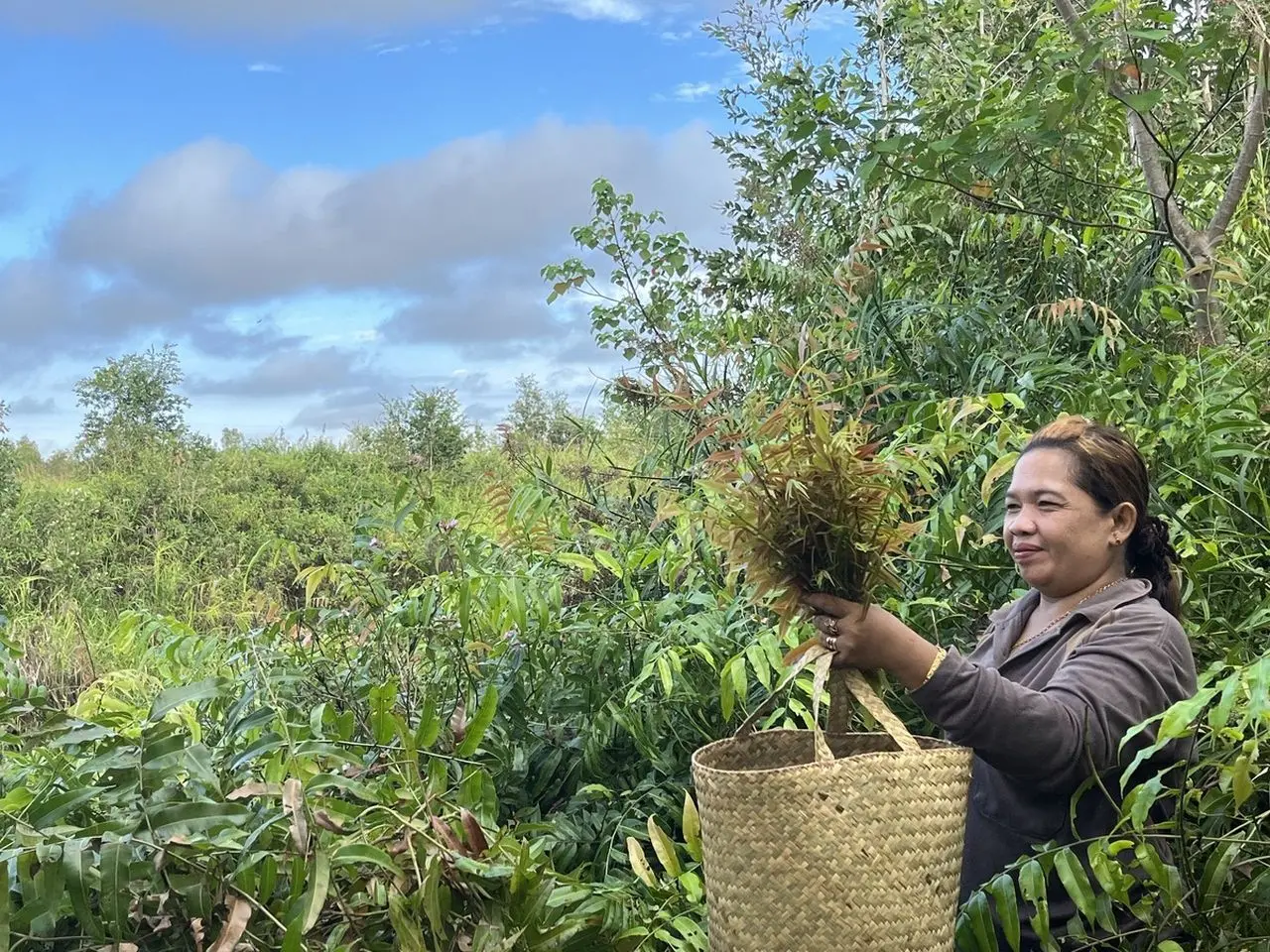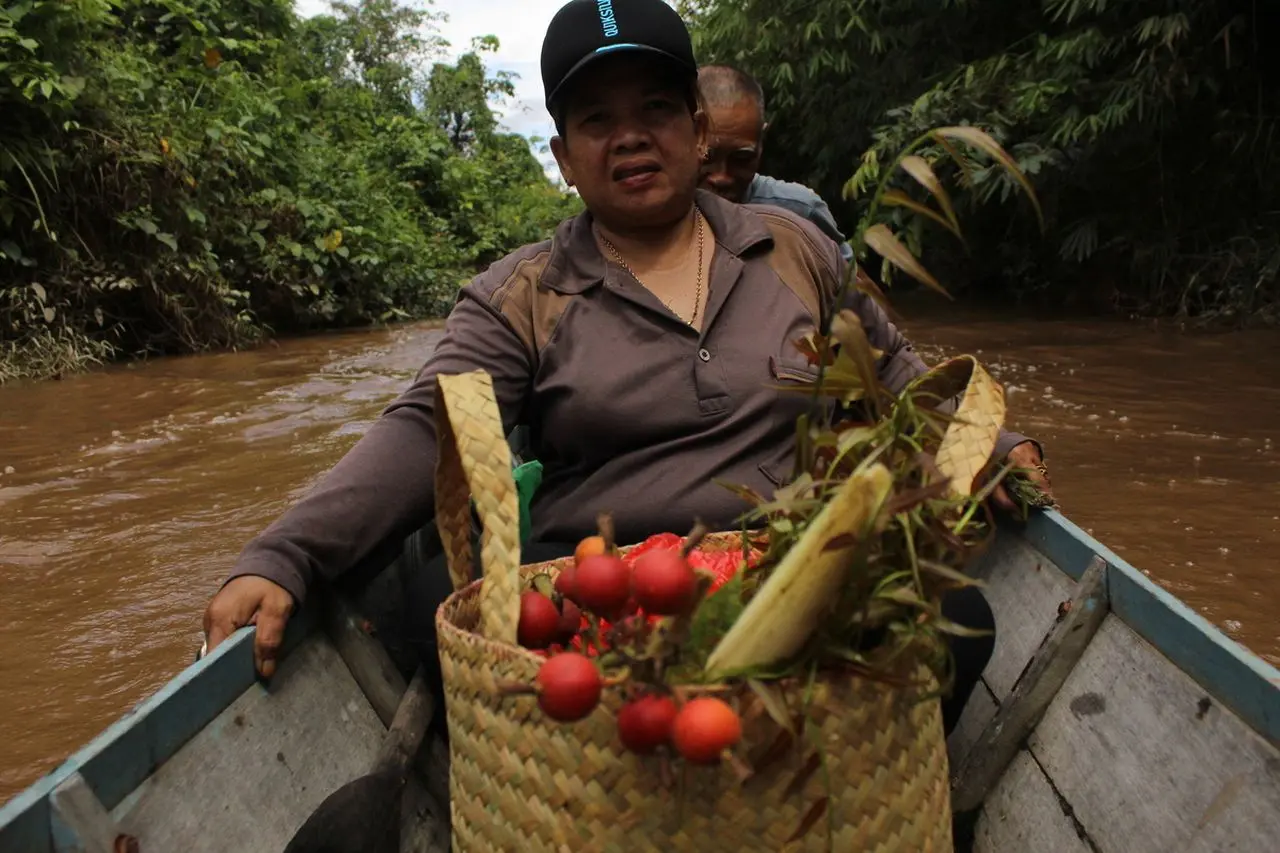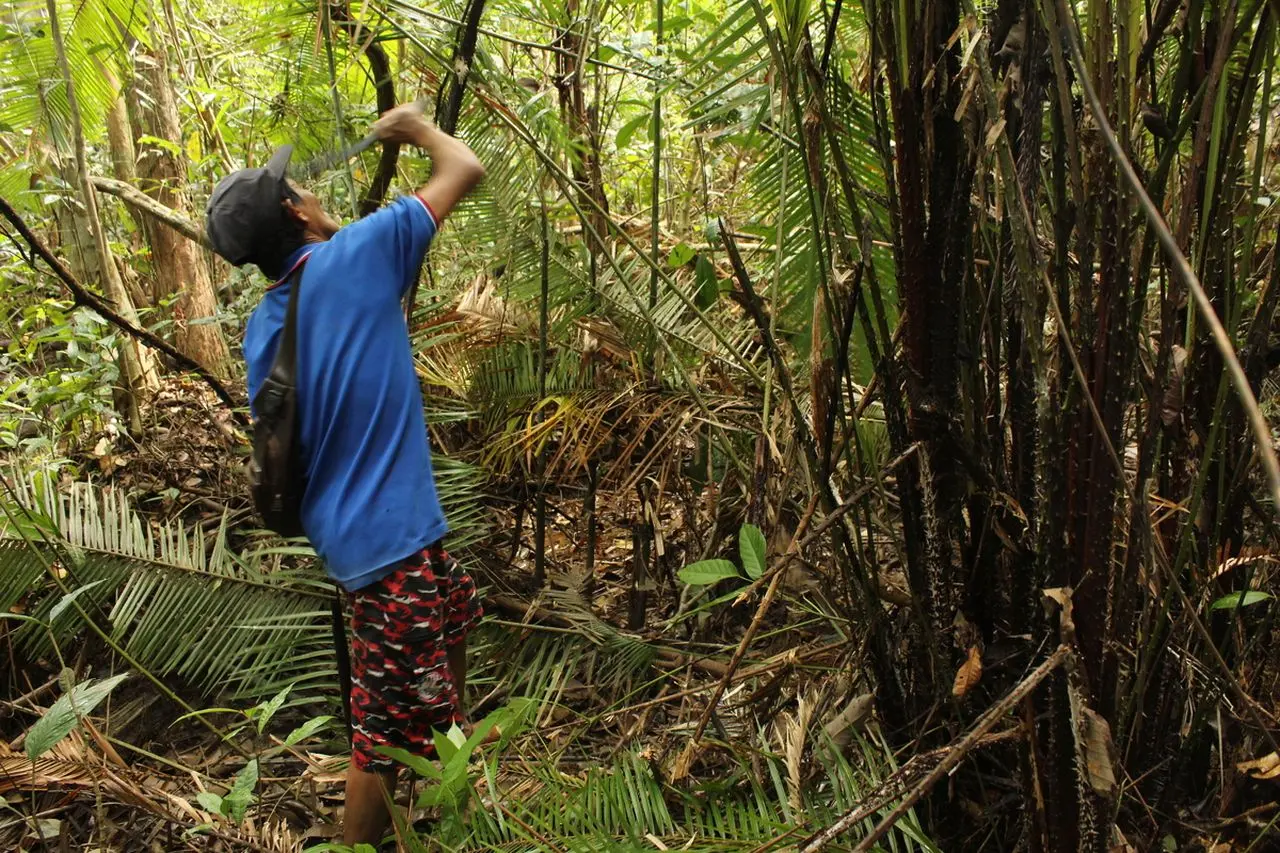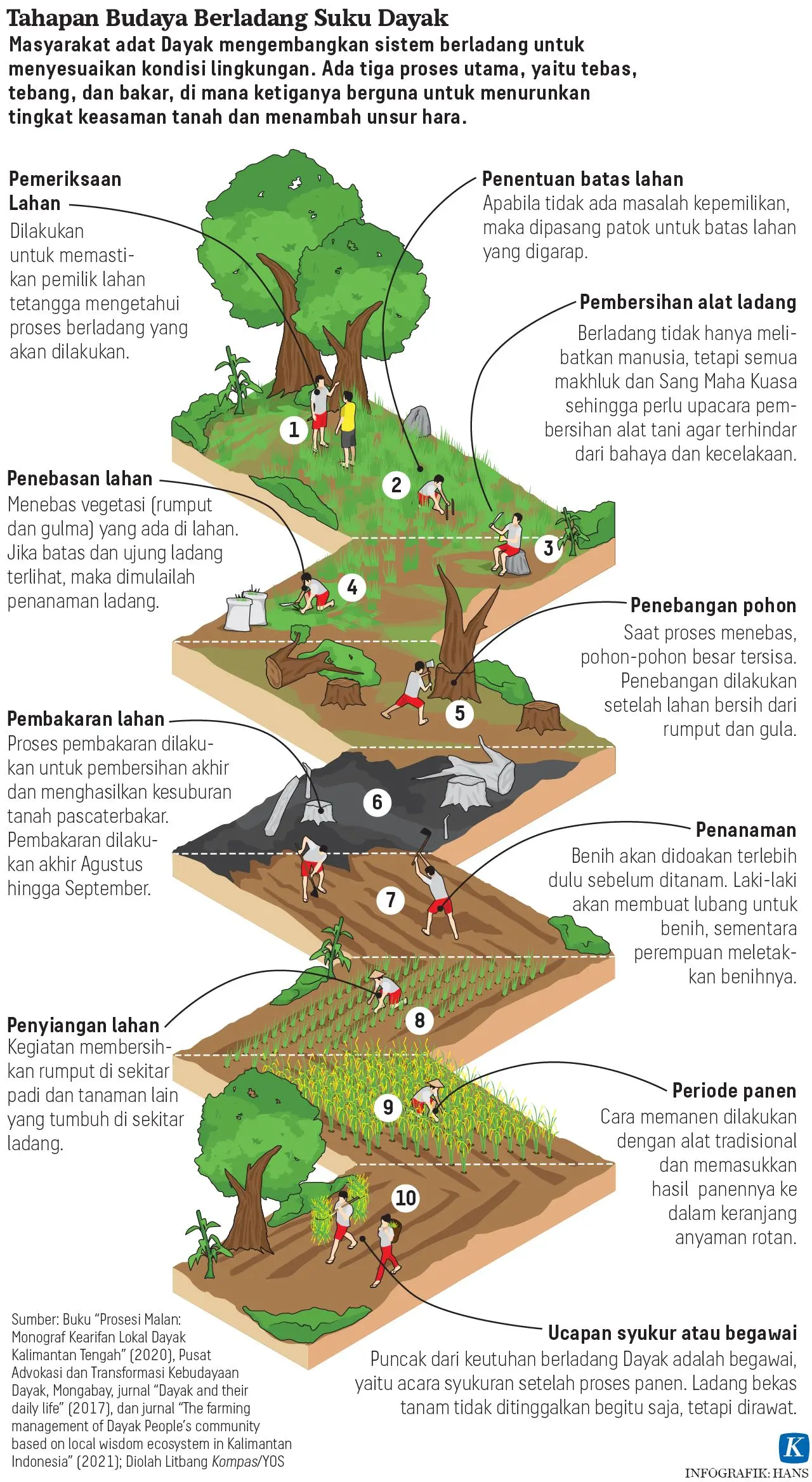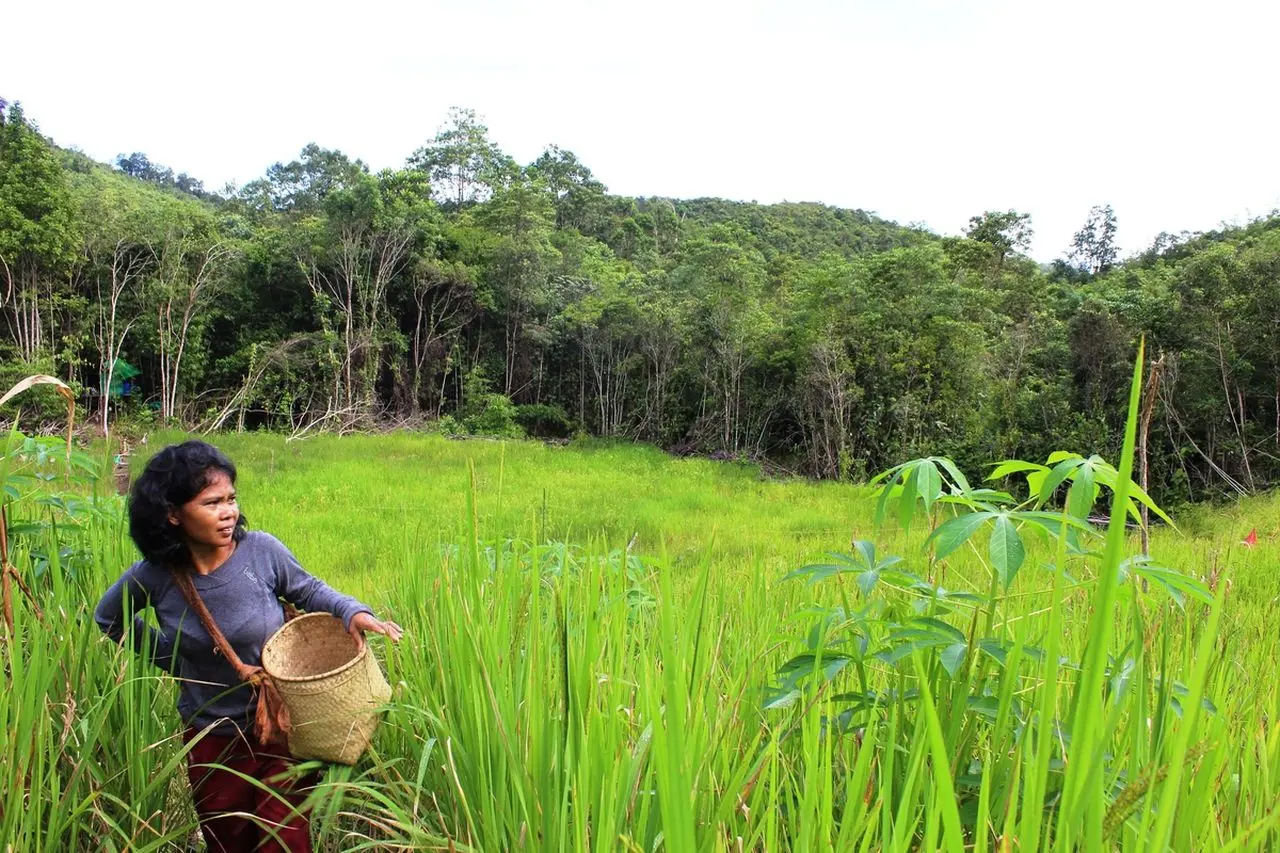This story excerpt was translated from bahasa Indonesia. To read the original story in full, visit Kompas. You may also view the original story on the Rainforest Journalism Fund website here. Our RJF website is available in English, Spanish, bahasa Indonesia, French, and Portuguese.
Farming is not only for food, but also for Dayak cultural identity. The harvest party marks the Dayak new year, so without farming there would be no new year.
Malan in the Dayak Ngaju language means 'farming'. Not only to meet food needs, farming is also the centre of Dayak life and culture. If this tradition ends, so does their cultural identity.
Sanyo (52)—a mantir adat, or traditional leader in Kalumpang Village, Kapuas Regency, Central Kalimantan—explains the important role of malan in the lives of the Dayak people. "Dayaks who do not farm have lost their identity because almost all of our rituals are related to farming," he said at his home on the banks of the Kapuas River.
Kompas travelled to Kalumpang to learn about the important role farming plays in the lives of Sanyo and his community. However, we could only hear stories of the past because since 2015 the Ngaju Dayak community in Kalumpang and other villages in Central Kalimantan can no longer farm.
Without malan, there is no new year for us.
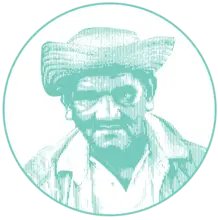
As a nonprofit journalism organization, we depend on your support to fund journalism covering underreported issues around the world. Donate any amount today to become a Pulitzer Center Champion and receive exclusive benefits!
